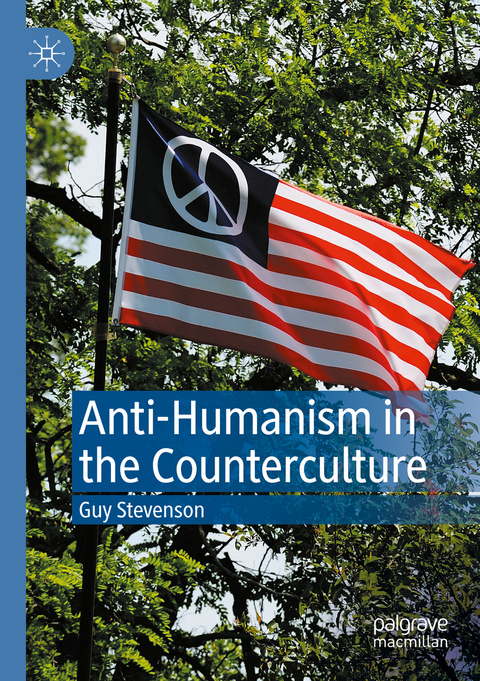
Anti-Humanism in the Counterculture
Springer International Publishing (Verlag)
978-3-030-47762-2 (ISBN)
This book offers a radical new reading of the 1950s and 60s American literary counterculture. Associated nostalgically with freedom of expression, romanticism, humanist ideals and progressive politics, the period was steeped too in opposite ideas - ideas that doubted human perfectibility, spurned the majority for a spiritually elect few, and had their roots in earlier politically reactionary avant-gardes. Through case studies of icons in the counterculture - the controversial sexual revolutionary Henry Miller, Beat Generation writers Jack Kerouac, Allen Ginsberg and William S. Burroughs and self-proclaimed 'philosopher of hip', Norman Mailer - Guy Stevenson explores a set of paradoxes at its centre: between romantic optimism and modernist pessimism; between brutal rhetoric and emancipatory desires; and between social egalitarianism and spiritual elitism. Such paradoxes, Stevenson argues, help explain the cultural and political worldsthese writers shaped - in their time and beyond.
lt;p>Guy Stevenson is a lecturer in literature at Goldsmiths and Queen Mary Colleges, University of London, UK and a recent postdoctoral fellow at the Institute of Advanced Studies in the Humanities, the University of Edinburgh, UK. He specialises in modernism and the 1960s counterculture and has published widely on both - including pieces in The European Journal of English Studies and in anthologies about the writers Henry Miller and Ezra Pound. Guy's essays have appeared in the Los Angeles Review of Books, The Times Literary Supplement and Literary Review, and he is currently editing a special issue of the journal Textual Practice, entitled 'Anti-Humanist Modernisms'.
1. Introduction: Romanticism, Humanism and the Counterculture.- 2. Henry Miller and The Beats: An Anti-Humanist Precedent.- 3. Jack Kerouac, Allen Ginsberg and their Transcendentalist Gloom.- 4. William Burroughs' Immodest Proposal.- 5. The Philosophy of Hip: Norman Mailer's 'Spiritual Existentialism'.- 6. Conclusion: Counterculture Then and Now
"Stevenson's book is a major step toward re-opening the Beats to serious consideration and critical scrutiny-a necessary move ... . Anti-humanism in the Counterculture is a bold and original piece of work that deserves to make a significant impact on the way we read the Beats and how we view their legacy in the twenty-first century." (John Bolin, Journal of Modern Literature, Vol. 46 (2), 2023)
“Stevenson’s book is a major step toward re-opening the Beats to serious consideration and critical scrutiny—a necessary move … . Anti-humanism in the Counterculture is a bold and original piece of work that deserves to make a significant impact on the way we read the Beats and how we view their legacy in the twenty-first century.” (John Bolin, Journal of Modern Literature, Vol. 46 (2), 2023)
| Erscheinungsdatum | 24.10.2021 |
|---|---|
| Zusatzinfo | VII, 223 p. |
| Verlagsort | Cham |
| Sprache | englisch |
| Maße | 148 x 210 mm |
| Gewicht | 308 g |
| Themenwelt | Geisteswissenschaften ► Philosophie ► Geschichte der Philosophie |
| Geisteswissenschaften ► Sprach- / Literaturwissenschaft ► Literaturwissenschaft | |
| Sozialwissenschaften | |
| Schlagworte | American Renaissance • anti-humanism • Beat generation • Counter-Culture • Experimental American literature • Ezra Pound • Henry Miller • Humanism • Jack Kerouac • Marshall McLuhan • Norman Mailer • Post-War • William Burroughs |
| ISBN-10 | 3-030-47762-2 / 3030477622 |
| ISBN-13 | 978-3-030-47762-2 / 9783030477622 |
| Zustand | Neuware |
| Haben Sie eine Frage zum Produkt? |
aus dem Bereich


